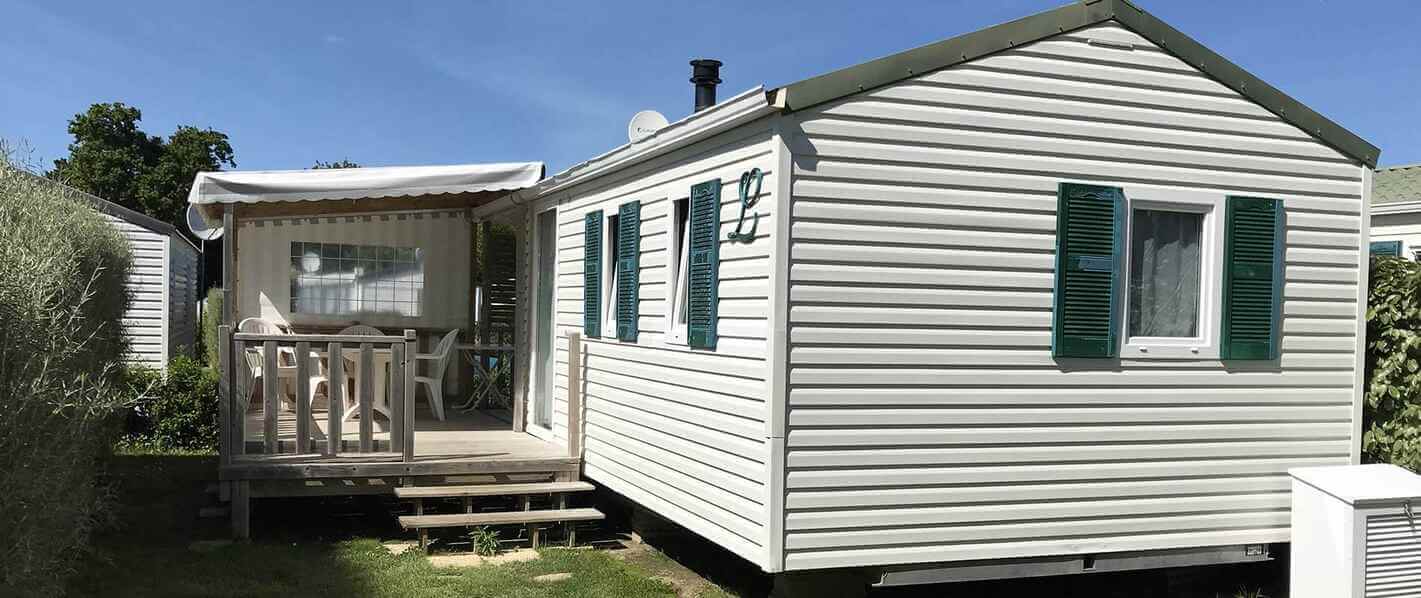The mobile home is a profitable choice in terms of rental investment. The purchase price, including for a new model, is widely accessible to as many people as possible. What’s more, with the status of “non-professional furnished rental company”, the owner has the choice between advantageous tax regimes. Although the operation is promising, there are pitfalls to avoid.
Acquiring a mobile home outside the campsite
Mobile homes for sale outside campsites or residential leisure parks (PRL) often have attractive prices. But make no mistake, such an acquisition is accompanied by a certain number of constraints. In fact, several outdoor establishments do not accept the installation of mobile homes purchased outside their premises. And even if you find one who accepts, you would have to plan for significant expenses, in particular those linked to loading, unloading and transport (around €5 per km) of the mobile home.
Added to this are the costs of installing and making the accommodation stable – the amount varies from one campsite to another but some do not hesitate to claim up to €8,000 as a “right of accommodation”. entrance “. Buying a mobile home already installed in a campsite or a PRL therefore seems significantly more financially advantageous. What’s more, the models offered generally come with a warranty of at least two years.
Purchasing from an individual
Buying from an individual may seem tempting, but it is far from being the most advantageous solution. Whether the models offered are new or used, their prices always clearly exceed those which are practically common on the market. The operation is all the more expensive as transport and installation expenses for the mobile home must also be taken into account, such as those described above.
Setting up the mobile home on private land
The regulations in force clearly determine the places in which it is possible to set up a mobile home: a campsite, a residential leisure park, a holiday village or even a leisure site under certain conditions set by the local PLU .
To be able to set up a mobile home on private land, you must follow time-consuming procedures provided for by the town planning code. A certain number of regulatory criteria must also be respected. If, for example, the surface area of the mobile home is less than 20 m2, the owner must make a prior request to the town hall; if the surface area of the accommodation is greater than 20 m2, a building permit is required before installation.
The different types of contract
Whether you opt for a campsite or a residential leisure park, you will always be offered different types of contract. It’s up to you to see which one best suits your needs.
The fixed-term contract
Several campsites offer contracts lasting five to ten years. When the contract comes to an end, you either change your mobile home or you change your location. The best is to resell the mobile home – to an individual or to the campsite – and to choose from the most recent models of the establishment. This will save you from having to pay for transportation or installation costs again.
The tacitly renewed contract
The duration of the contract is not determined. Although this aspect may be tempting, caution must always be exercised, particularly regarding the renewal conditions required by the campsite or PRL operator.
The campsite or the PRL is responsible for rental management
Most of the time, a clause in the contract prohibits the mobile home owner from renting out their property themselves. This task then falls to the manager of the establishment, who is entitled to a portion of the rental income – 20 to 60% depending on the case.
The length of time campsites are open
To ensure the profitability of the rental investment, the best is to focus on a campsite open all year round. Not only can your family enjoy a relaxing weekend or vacation at any time, but your accommodation will be accessible to vacationers for many months.
View all our articles
